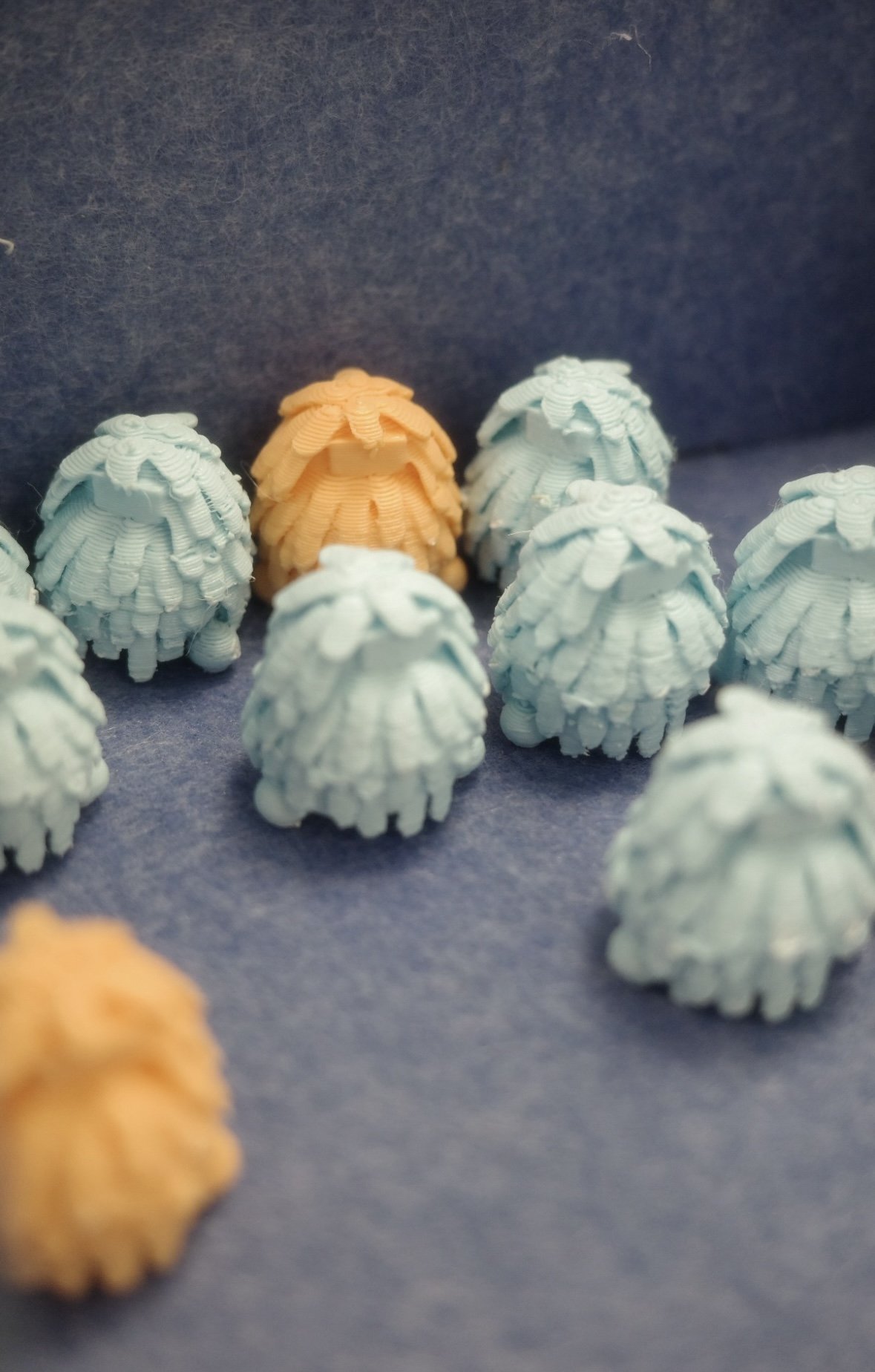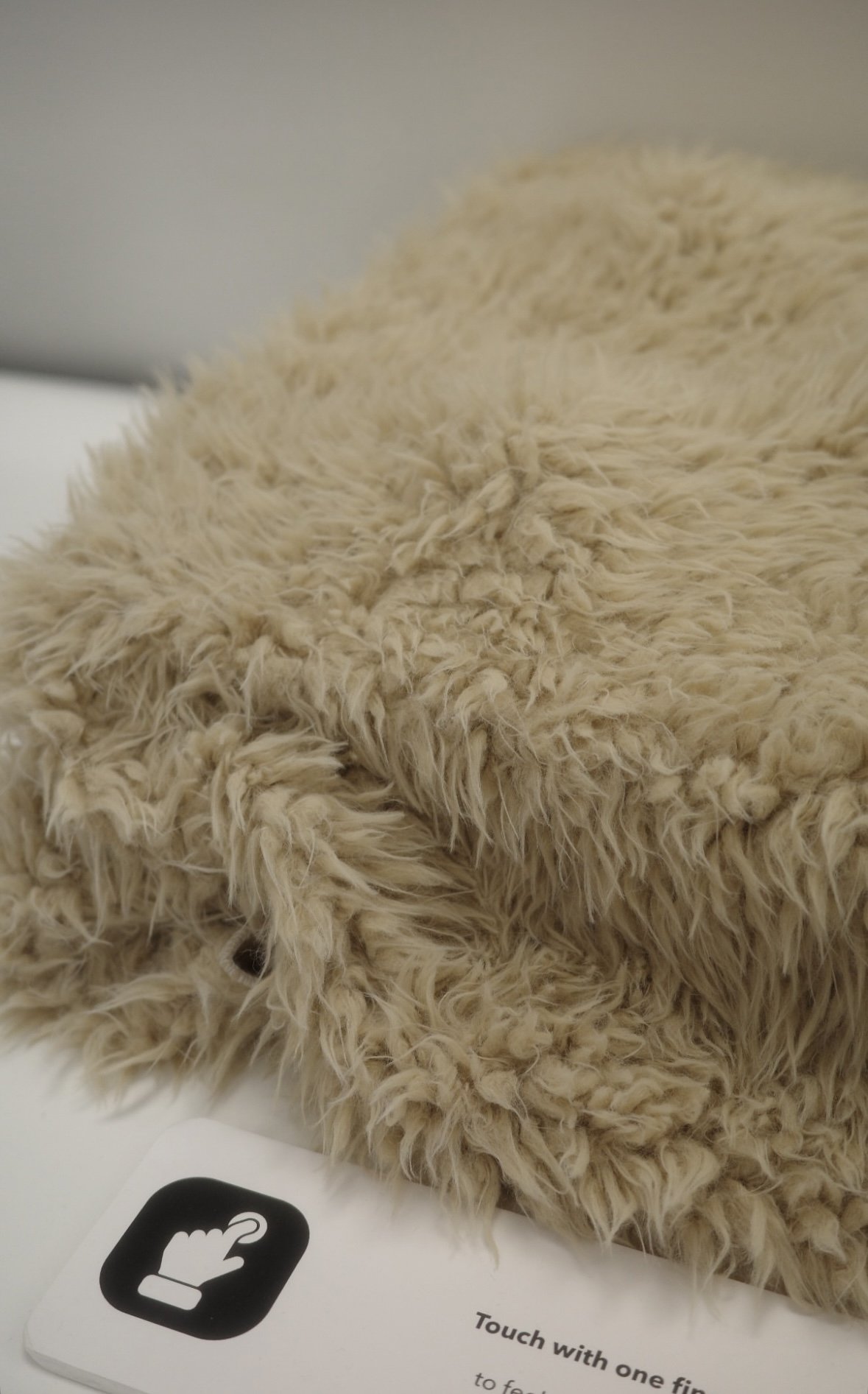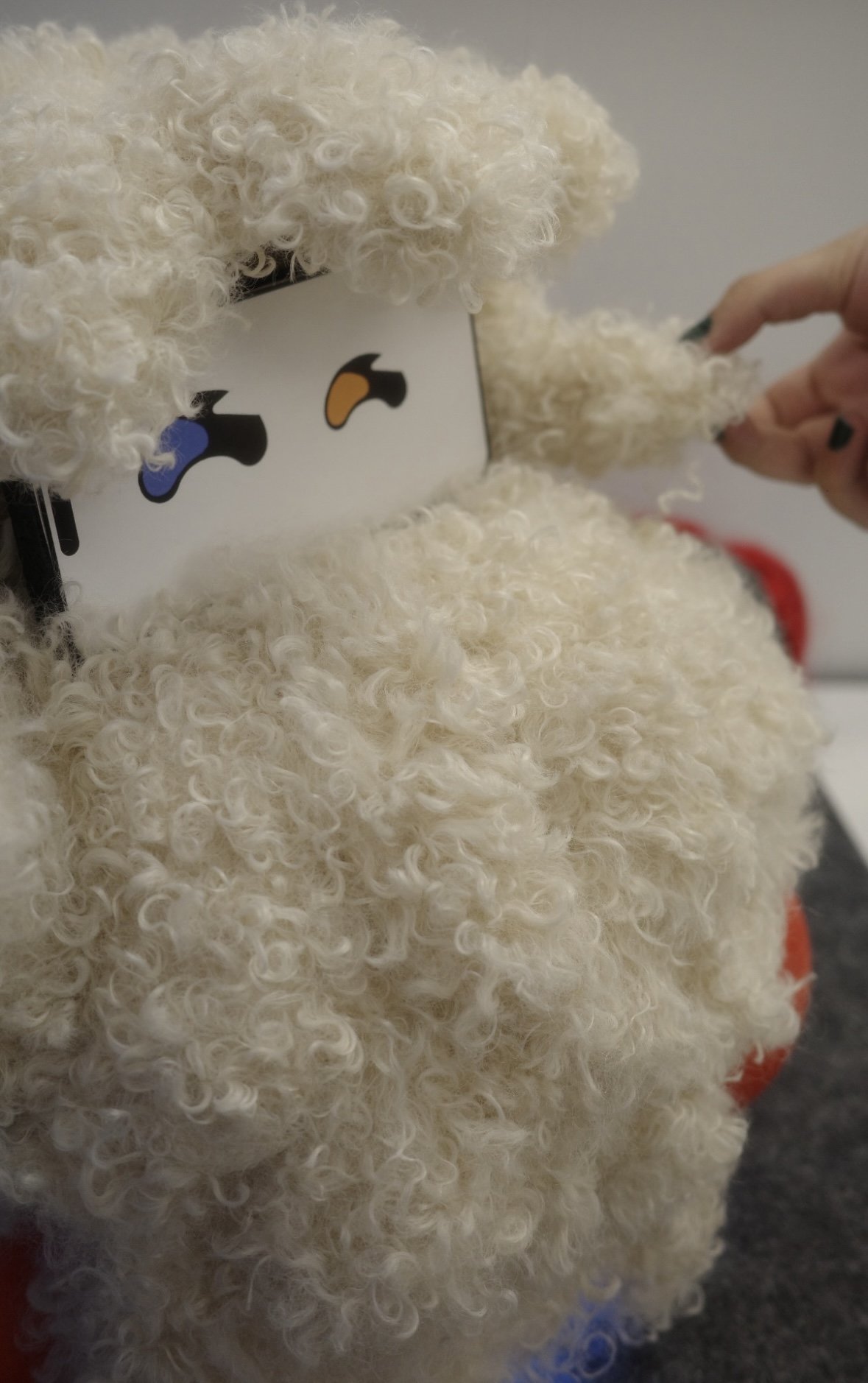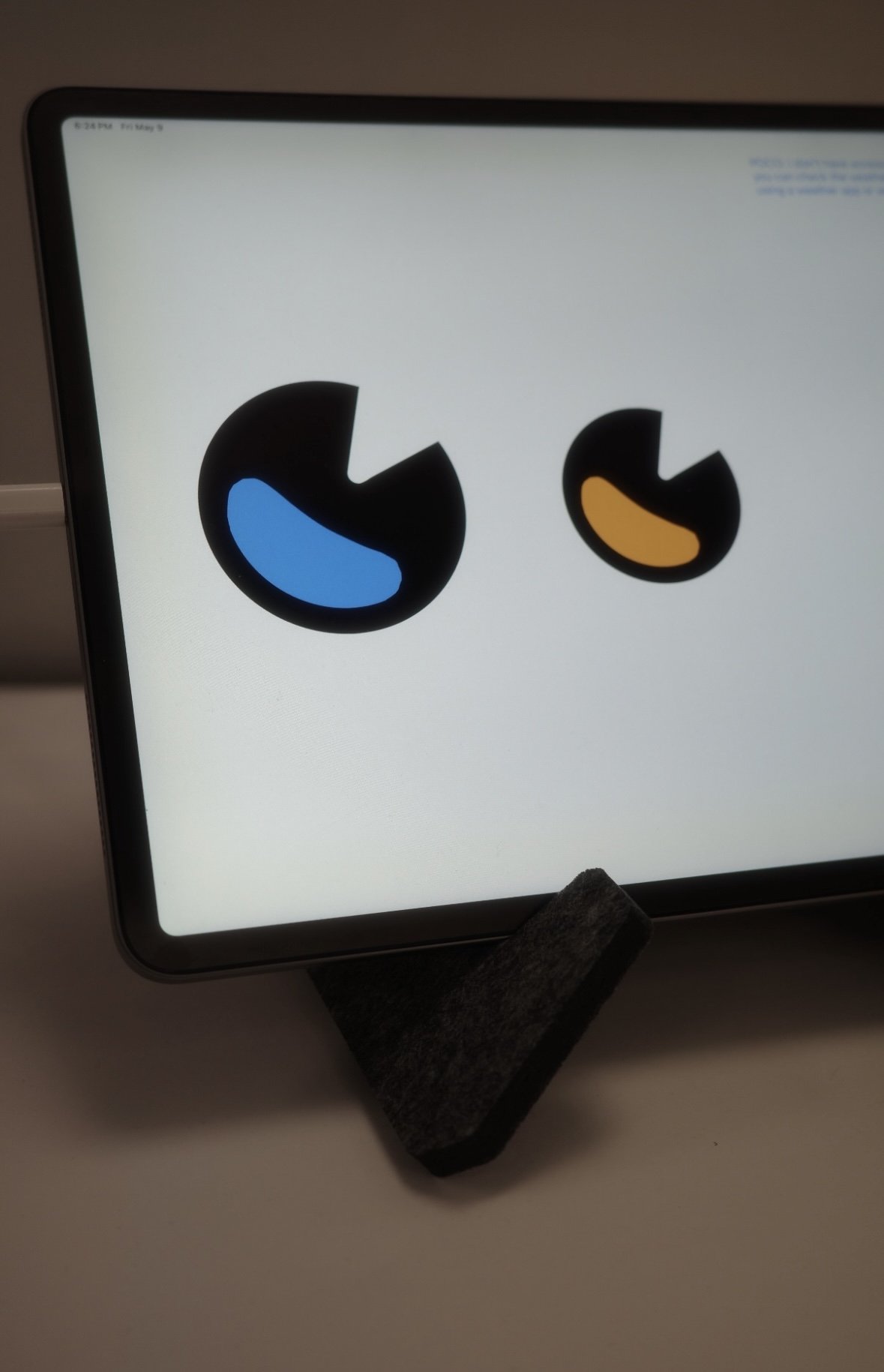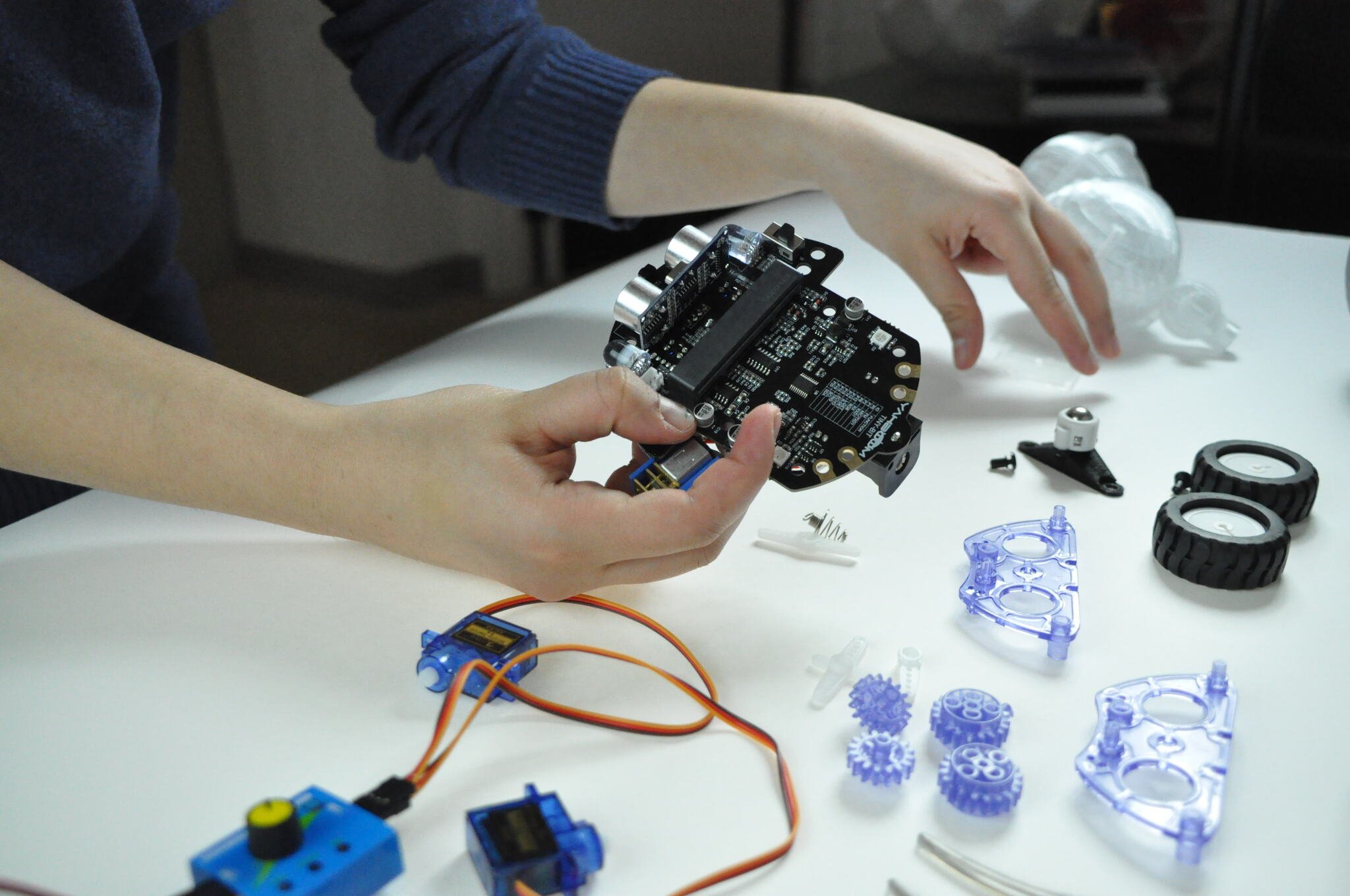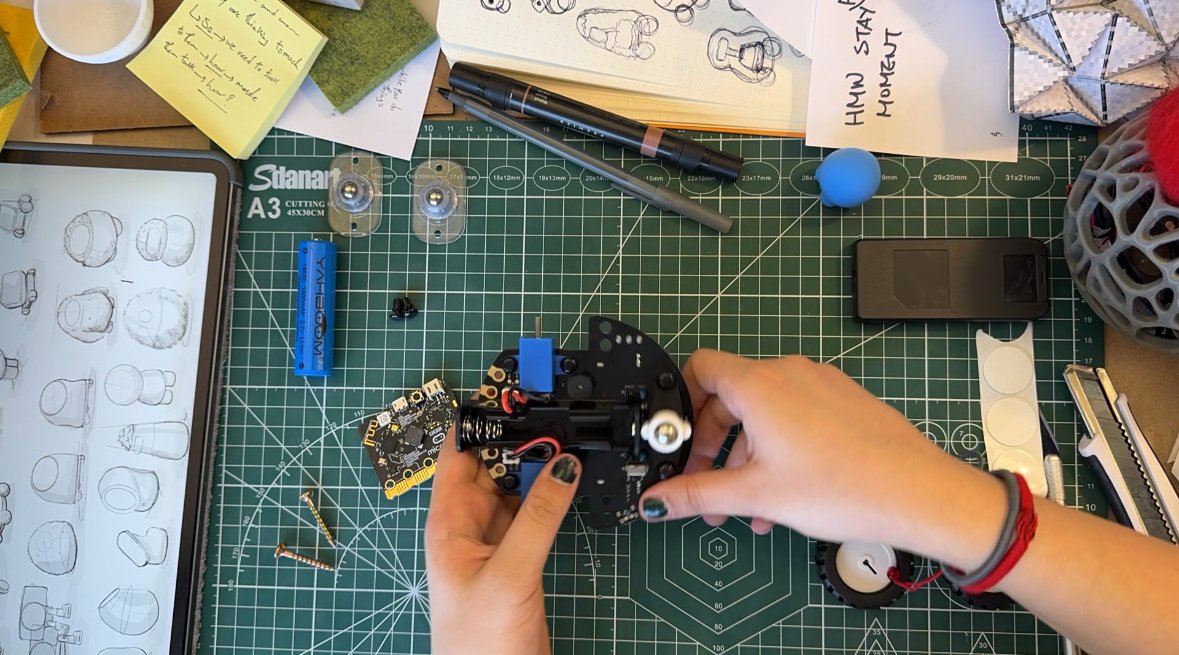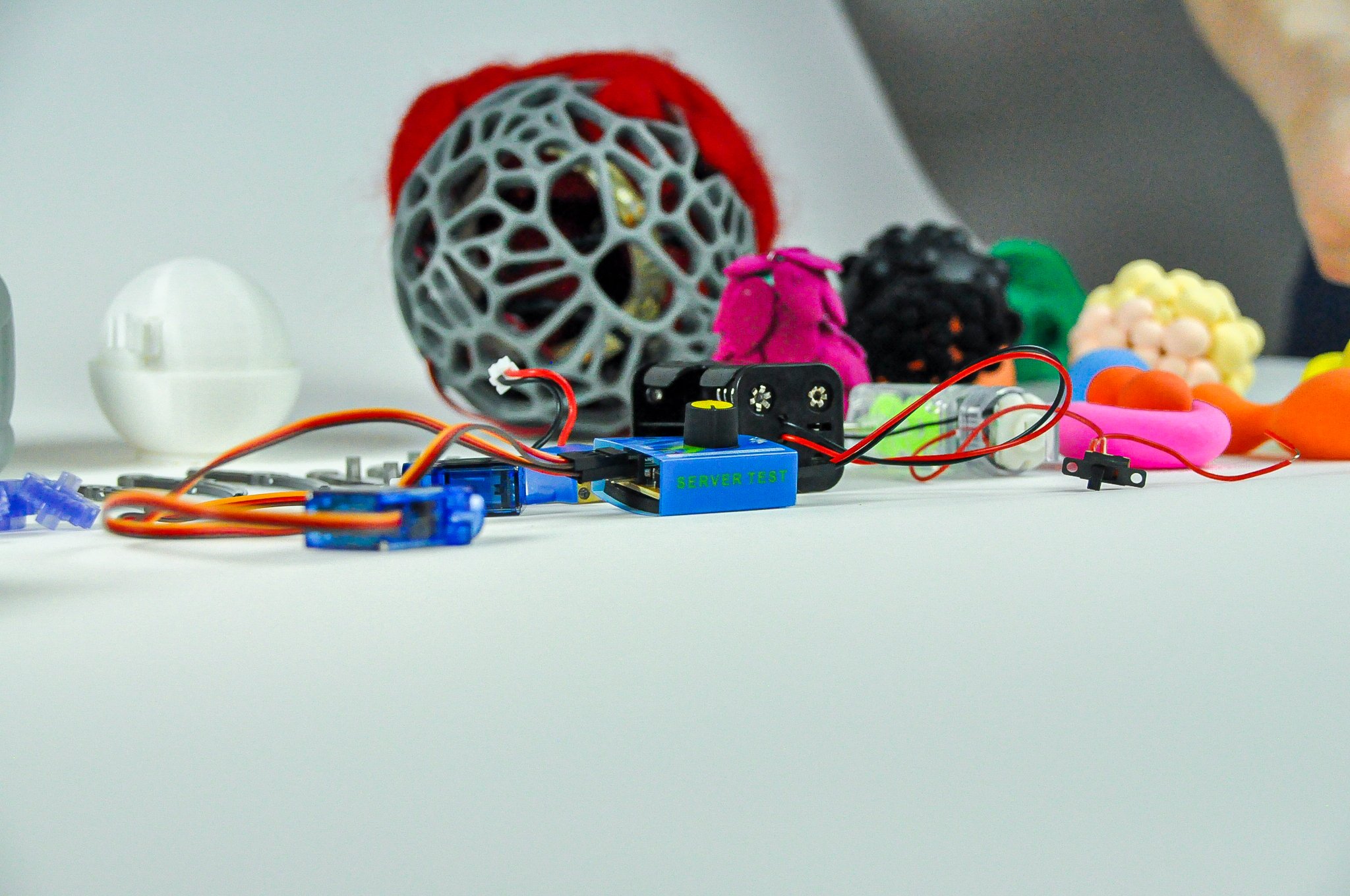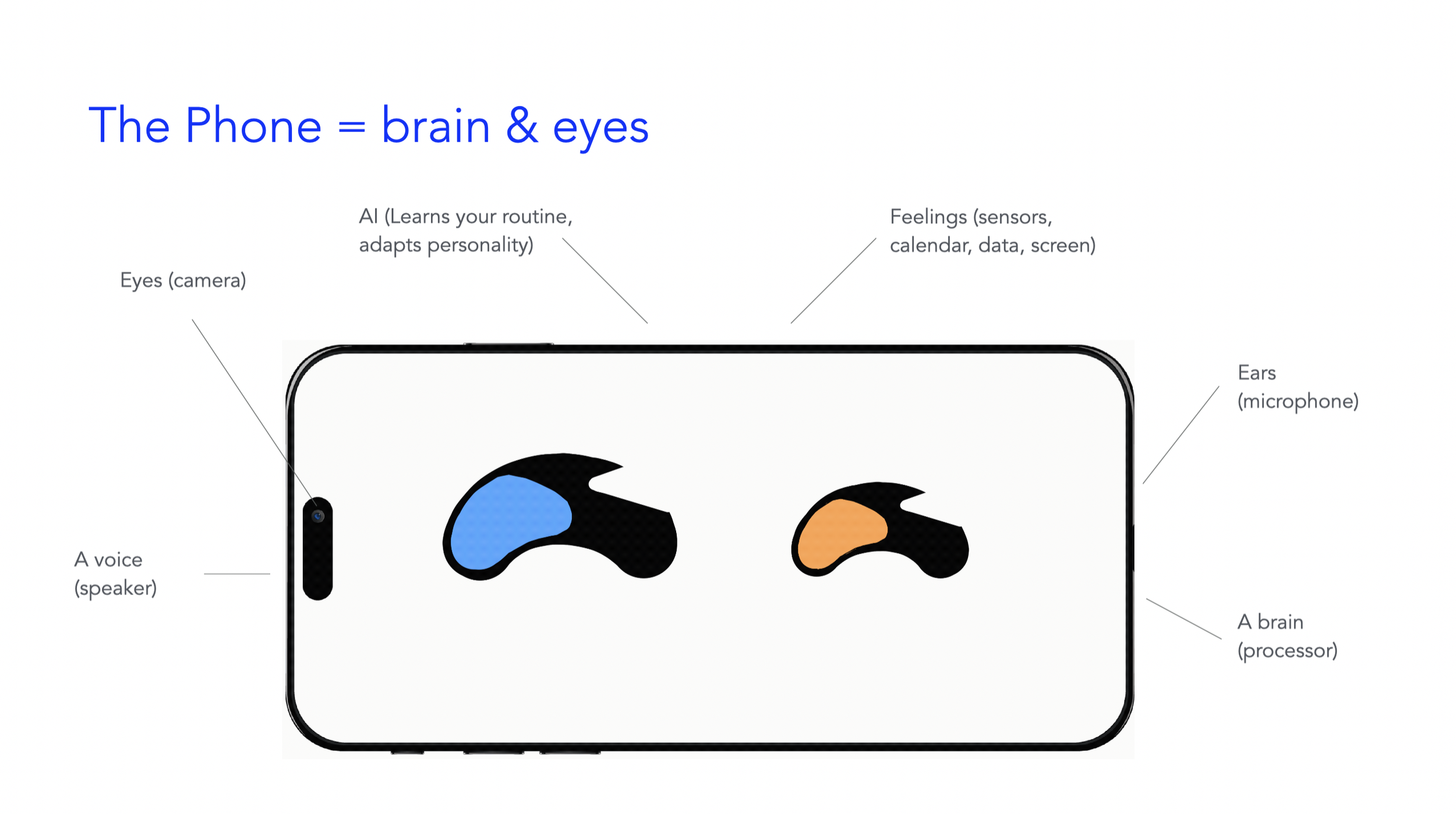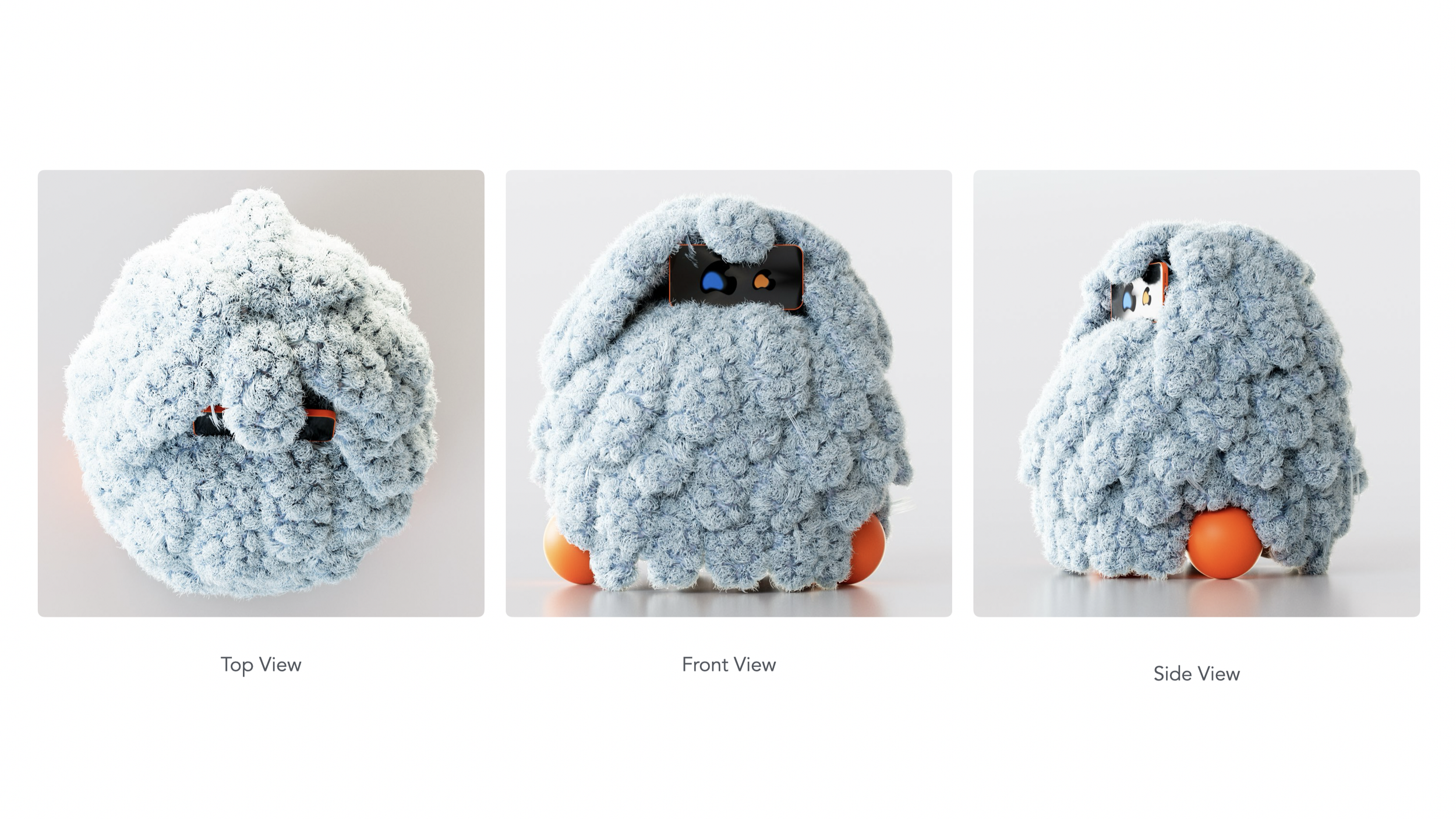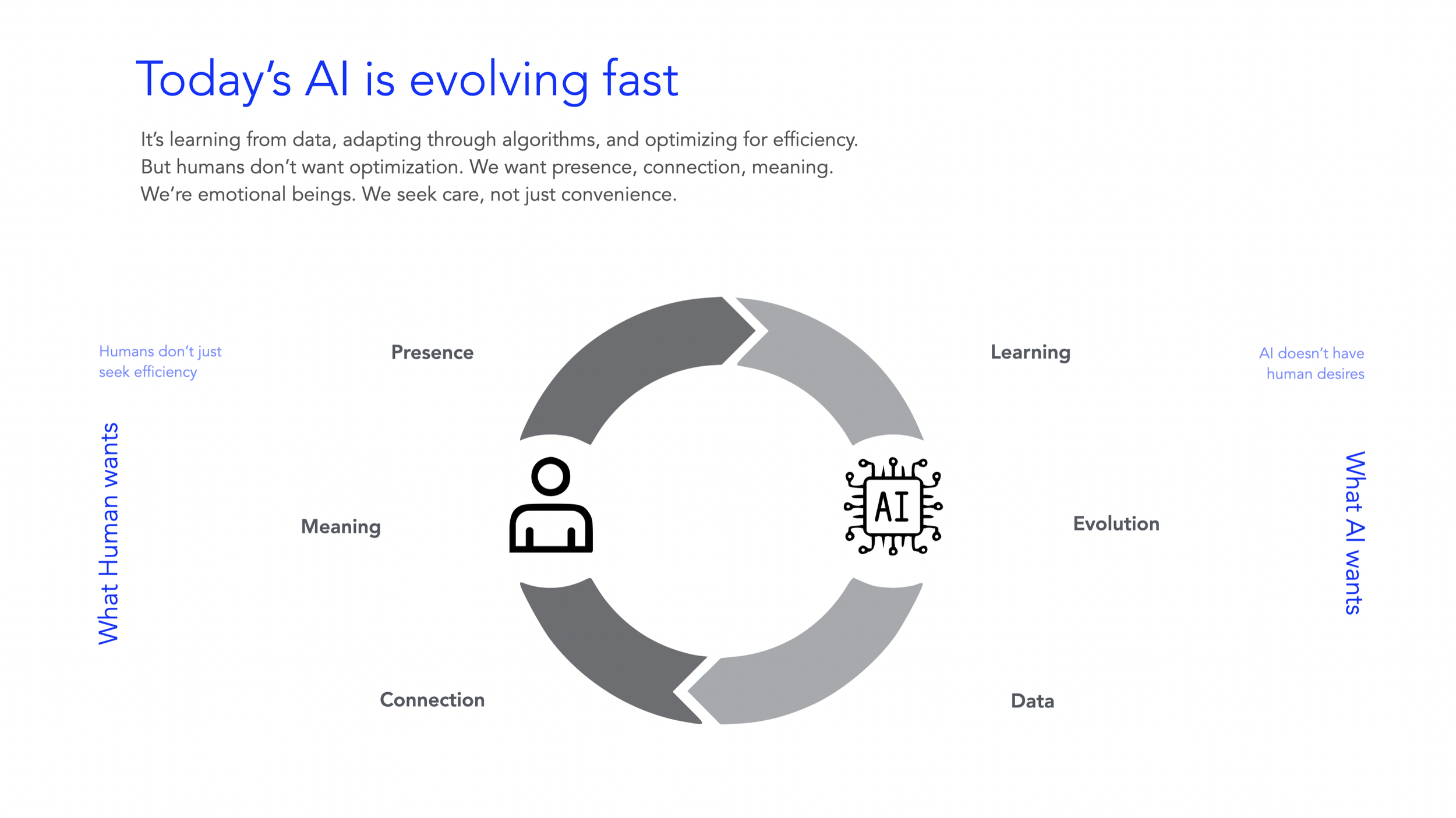Mehrnaz Amouei
POCO
POCO is a soft robotic companion that investigates the future of human–AI interaction through the lens of constructive interdependence and mutualistic symbiosis. In today’s world, artificial intelligence often manifests as something disembodied—an invisible presence in our phones, an abstract voice assistant, or a background algorithm shaping how we live. POCO challenges this paradigm by giving AI a tangible, physical form—one that can move, respond, and be touched.
At the heart of POCO is a hybrid system composed of two interdependent parts: the smartphone, which serves as POCO’s brain, face, and perceptual system; and the POCO body, a soft, expressive form that gives the intelligence a physical presence in space. The two cannot function fully without one another—POCO is not a robot in service of the phone, nor is the phone a remote control. Instead, they rely on each other in a balanced, co-regulating relationship. This mutual dependency invites users to care for POCO, and in doing so, to renegotiate their own relationship with technology.
Rather than layering more complexity onto the already overwhelming landscape of digital devices, POCO seeks to redirect attention—away from endless notifications and passive screen consumption, toward slower, more embodied modes of interaction. It is not designed to command attention, but to share space—to be felt rather than simply used. With movement, gesture, and subtle emotional cues, POCO explores how AI can be integrated into our lives in ways that are not only intelligent but also emotionally resonant and spatially aware.
POCO questions what it means to live with intelligent systems—not as tools to control or pets to entertain, but as companions we co-evolve with. It is a proposal for a new kind of interface: one that dissolves the boundary between digital and physical, and redefines presence, empathy, and intimacy in our interactions with technology.
